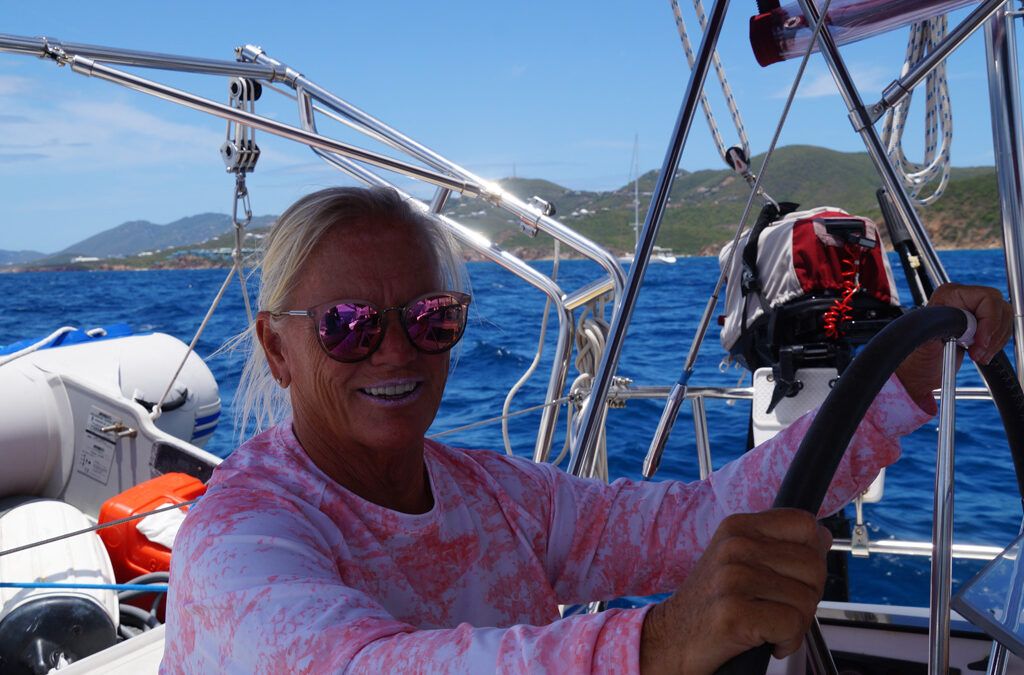What’s the big deal, I know how to be safe. It’s a boat. I drive, I’m smart, I’ll figure it out.
How hard can it be? Right. What can go wrong?
I’m a Doctor, Business Owner, a Pilot, I know how to be safe.
It’s just a map. I have no idea what those symbols mean…
I don’t need to know that… or why?
I can just pay somebody.
We have life jackets; they are just so uncomfortable. They certainly don’t match my outfit.
We can just throw the anchor out and we’re good.
How many times have you heard this? Well, I am shocked at the innocent arrogance of individuals who think they know. Yesterday in fact I listened to a couple of guys and the one was clear they had to do things differently. The other guy frankly was obtuse. Why would I need a “weather routing service” for a 600-mile passage in the Caribbean”? The weather this time of year in the South Western part of the Caribbean is notoriously windy, large swell, and difficult. The factor that was important to him was meeting friends. In my humble opinion we truly have to change our thinking her and be clear, that safety is first and that means conditions need to be favorable with the weather, the boat needs to be readied, and the crew needs to be prepared. The reality is we are on a sailboat. It is not car.
WRONG! I am not saying that it is “hard”! I am saying that is – SAFETY IS A NECESSITY!
Yes, it will take some time, but that time can save your life and lives of others. Being on the water is not as simple as driving a car. Why, because the conditions are drastically different. Mother Nature – Weather, the Ocean, the Wind, the currents, then your boat, the basic elements of being on the ocean which means you will find salt penetrating everywhere and I do mean everywhere. The Sun alone takes a huge toll on a boat, the equipment, the rigging…
Seriously, the statistics from USCG are telling us that people are missing the boat.
*75% of deaths occurred on boats where the operator did not receive boating safety instruction.
*Operator inattention, improper lookout, operator inexperience, excessive speed, and machinery failure ranked as the top five primary contributing factors in accidents.
*Collisions (with vessels, objects, groundings) were the most frequent first event in accidents, attributing to 56% of accidents
Top three Rules of the Road
- Proper Lookout – designate a person to watch for dangers,
- Maintain a Safe Speed – You must judge “safe speed” for yourself, taking into account visibility, vessel traffic, your boat’s ability to maneuver, and the weather conditions
- Avoid a collision at all costs – you must do it, even if you deviate from a different Navigation Rule.
TOP TEN KNOWN PRIMARY CONTRIBUTING FACTORS OF ACCIDENTS
- 1. Operator inattention
- 2. Improper lookout
- 3. Operator inexperience
- 4. Excessive speed
- 5. Machinery failure
- 6. Navigation rules violation
- 7. Alcohol
- 8. Weather
- 9. Hazardous waters
- 10. Force of wake/wave
https://www.uscgboating.org/library/accident-statistics/Recreational-Boating-Statistics-2023-Ch1.pdf
If boat and sailing is something that is important to you and your family remember these points.
- Boating on a crowded waterway can be scary! The good news is that there are rules to govern the action of each vessel. The bad news is that many vessel operators do not know the rules!
- Not complying with the Rules – even if you don’t know them, can get you in trouble on the water. Even if you think you are following the Rules, if there is something that you can do to avoid a collision – you must do it, even if you deviate from a different Navigation Rule.
- It is your responsibility as the vessel captain to be aware of your surroundings at all times, and to operate your vessel in a safe manner.
- The Rules state that every vessel shall use all available means appropriate to the prevailing conditions to determine if a risk of collision exists. If there is any doubt, such risk shall be deemed to exist.
- If you want your family to boat with you stay calm, don’t yell, keep it fun, and keep safety as your priority. Your kids will never forget the fun times on the water with you.
I can share with you that from my personal experience that being a family who loves watersports from power boats to sailboats (Cruising over 32,000 nautical miles), kayaking, paddleboarding and more. We set an example for our kids early on Safety First. Yes, there have been some incidents and that happens not due to negligence just happens. So, be prepared. And I mean from ensuring your First Aid is current to really getting yourself a strong background and education in the boat, boat handling, boat systems, navigation, rules of the road. That knowledge will pay off.

